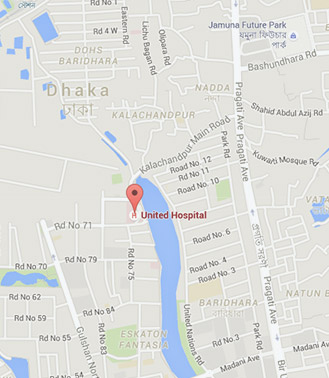Chest pain? It is best to be safe. Always seek medical care for the assessment of chest pain
There are many causes of chest pain, and while many are not serious, it may be difficult to distinguish a heart attack, pulmonary embolus or aortic dissection, from another diagnosis that is not life-threatening. For that reason, patients are routinely advised to seek medical evaluation for most types of chest pain.
Chest pain is one of the most common complaints that will bring a patient to the emergency department. Seeking immediate care may be lifesaving, deciding the cause of chest pain is sometimes very difficult and may require blood tests, X-rays, CT scans and other tests to sort out the diagnosis. Often though, a careful history taken by the health care professional may be all that is needed.
When “chest pain” is mentioned, many of us immediately think “Heart Attack!” While a heart attack if a very real possibility, chest pain is not always indicative of a heart attack, or even heart-related. Any organ in the chest cavity can cause chest pain, including the lungs, esophagus, or even muscles and tendons. The only way to be certain of the cause of chest pain is to see your doctor.
Some of the more common cardiac, or heart-related, issues that may cause chest pain include:
Angina: A blockage in the blood vessels that reduces blood and oxygen flow to the heart muscle. This causes pain but not permanent damage to the heart.
Aortic Dissection: The inner layers of the main artery in the heart, the aorta, separate and blood is forced in between the layers. This is potentially fatal, as it can cause the aorta to burst.
Myocardial Infarction (M.I.): In what is commonly known as a heart attack, a blood clot blocks blood flow to the heart, causing cardiac cells to die. The pain of an M.I. is usually more severe than during an incidence of angina and is not relieved by rest. An M.I. can also cause nausea, sweating, and overall weakness.
Pericarditis: The protective sac around the heart becomes inflamed. Pain from this may spread into the shoulder and neck.
Lung related issues may include:
Pulmonary Embolism: A blood clot in the lung.
Pneumothorax: A collapsed lung. This is most frequently caused by an injury to the chest cavity.
Pleurisy: The inflammation of the lining around a lung can cause sharp chest pain, which becomes worse when deep breaths are taken.
Gastrointestinal issues can also lead to chest pain. Some of these issues include:
Gastroesophageal Reflux Disease (GERD): Commonly known as Acid Reflux Disease. Stomach contents move back into the throat, causing heartburn. Heart pain and heartburn can feel similar, since the esophagus is located so close to the heart, and the two organs share nerve networks.
Gallbladder or Pancreatic Issues: Inflammation of the gallbladder or the pancreas can cause pain that radiates up to the chest. Pain stemming from an inflamed pancreas will often be worse when lying flat. Gallbladder inflammation or gallstones will cause pain on the right side on the upper abdomen or lower chest, particularly after eating a meal high in fat content.
Chest Pain and Angina
There are five major risk factors for heart disease:
- smoking,
- high blood pressure,
- high cholesterol,
- diabetes, and
- family history.
You can't do anything about the genes you inherited, but the other four need life long vigilance to minimize the risk of not only heart attack but also stroke and peripheral vascular disease. All risk factors involve narrowing of the arteries that supply blood to the body and the consequences that occur when organs don't get enough blood and start to fail.
The chest pain from angina is a warning sign that a disaster may be on the horizon. The narrowing of a blood vessel to the heart occurs because of plaque or cholesterol buildup. When the plaque ruptures and completely blocks the artery, no blood will flow to parts of the heart muscle, and it begins to die. The clock starts when this occurs, and each minute that passes means that more heart cells die. When a patient gets to the hospital, the goal is to open the blood vessel with an angioplasty which is called Primary PCI. UHL is the only hospital in the country that provides 24/7 Primary PCI facility.
You should call 10666 for UHL Ambulance if you experience:
- Sudden pressure or squeezing under your breastbone
- Chest pain that spreads to the jaw, left arm, or back
- Sudden, sharp chest pain accompanied by difficulty breathing, especially following a period of inactivity
- Rapid heartbeat or breathing accompanied by nausea, dizziness, confusion, and/or excessive sweating
- Very low pulse or very low blood pressure



